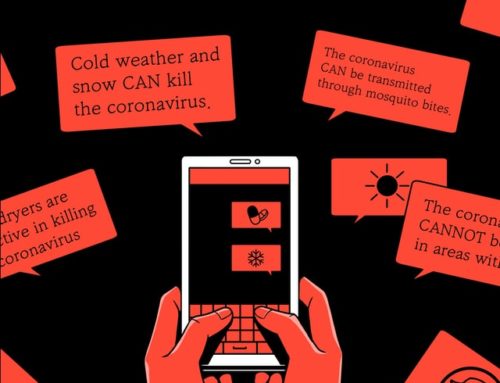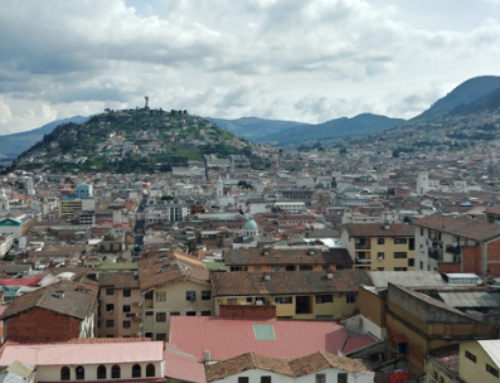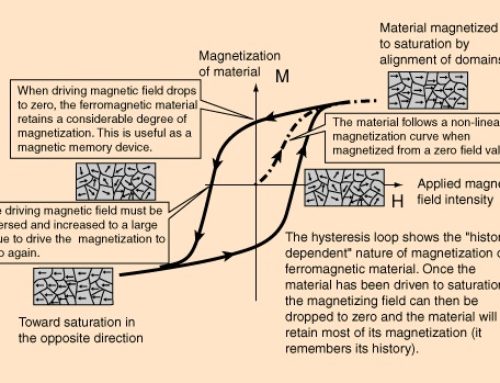“It is a segmented, immobile, frozen space. Each individual is fixed in his place. And, if he moves, he does so at the risk of his life, contagion or punishment. Inspection functions ceaselessly. The gaze is alert everywhere…”—Michel Foucault, Discipline and Punish (1995: 195)
It is no surprise that Foucauldian musings have proliferated rapidly in the time of Covid-19. In a manner unprecedented since the HIV-AIDS crisis of the 1980s and 1990s, the global response to the Corona pandemic has sharply illustrated the entanglements of biopolitics and necropolitics, and the investment of political actors in managing the dialectical relationship between those compelled to live and those allowed to die. State institutions have seized the Corona moment to reassert forms of barrel-chested sovereignty that reductive analyses focused on neoliberal governmentality had tossed in history’s dustbin; disciplinary power is suddenly ubiquitous again. For critics of state practice such as Giorgio Agamben (2020), the principal tragedy of Covid-19 is not a matter of the virus’s depredations, but the “exceptional” ease with which sociality has been reduced to an image of bare life due to the recrudescence of sovereign power. Yet surely even champions of liberal freedoms camouflaged in leftist garb are not so naive—disciplinary power, as Foucault pointedly reminds us (1991: 101), never waned fully in the first instance.
Such is the meta-political context of Covid-19, narrated with brevity and the benefit of several months of hindsight. As infections rose precipitously in February and March, this Archimedean perspective was nearly impossible to attain. During this time, I made a brief trip for fieldwork in Turkey that was quickly derailed by the escalating epidemiological-political tsunami. I offer the following reminiscence as a case study in the disciplinary power of the pandemic at the onset of a broader sea change in configurations of bodies and institutions.
I have strong suspicions as to the culprit: reheated lentil soup from Ankara’s main train station, or perhaps a glass of spoilt ayran, the salty buttermilk drink that is a national beverage in Turkey. Prior to arriving in Istanbul from Zagreb the previous day, I began to experience a mild cough, a sinus headache, “flu-like symptoms”—the catchall phrase that has become sinister in recent months. Following the lecture I delivered that evening, I was racked by alternating episodes of chills and sweats, and spent the night rushing between bed and bathroom. Food poisoning, surely, but in conjunction with my winter cold and the gathering tempest surrounding Covid-19, I opted to seek out a doctor for consultation the following day. An unanticipated odyssey through the Turkish healthcare system began with this decision.
As is the case for many privileged patients in Turkey and elsewhere, my first destination was a polyclinic, a private medical practice that offers diagnostic and treatment services. The ambience of the polyclinic and the cordial welcome that I received at reception reflected the expectations of the clientele in its chic Ankara neighborhood—here, I was clearly a customer as well as a patient, and any form of medicalized disciplinary power was conspicuously absent. My wait was not long, and my examining doctor was thorough, gentle, and clear in her explanations. Immediately, several nurses shuttled me from one laboratory to another for chest x-rays, a blood test, and a sputum culture. Within half an hour of my arrival, my examination was complete, and I was asked to return in several hours for results. When I did so, I received an articulate summary from my examining doctor and her colleague, a senior member of the polyclinic’s staff. They suspected that I had contracted Legionnaire’s Disease, and recommended a comprehensive program of antibiotics. I exhaled in relief, and rose to depart, but the doctors continued: “Unfortunately, as you’ve just arrived from Croatia, where there are several Corona patients, we must insist that you go to one of Ankara’s large hospitals to be tested for Covid-19. We can’t provide that service here.”
After settling my bill, I hailed a taxi; the driver was only mildly disconcerted by my mask. He drove me to Ankara City Hospital, on the western margins of the city. The hospital foyer brimmed with families and groups of patients milling about or sitting on benches, stolidly awaiting information. I bounced between several triage stations before effectively explaining to a nurse that I had arrived to be tested for the Corona Virus. She hurriedly wrote “foreign patient!”—yabancı hasta!—on a blank card and directed me to the registration desk. At that point in late February, the hospital staff in Ankara had not yet adopted uniform precautions. The attendant who completed my registration wore a mask but no gloves; other staff were entirely without protective paraphernalia. Following my registration, I spoke to several harried triage nurses and doctors, all of whom seemed confused by my situation, likely due to my foreign accent muffled by my surgical mask. The designation on my registration card—“foreign patient!”—exerted an urgency of its own, however: I was clearly a dilemma that demanded immediate attention. A young doctor soon took responsibility for me, and conveyed me to a large, secluded ward where other possible Corona patients awaited tests and diagnoses. At the time, my only company was a young man speaking urgently on his cell phone in Farsi. I was pleased that our gurneys were separated by several meters. The lax behavior of the nurses and orderlies, only some of whom wore masks, was less reassuring.
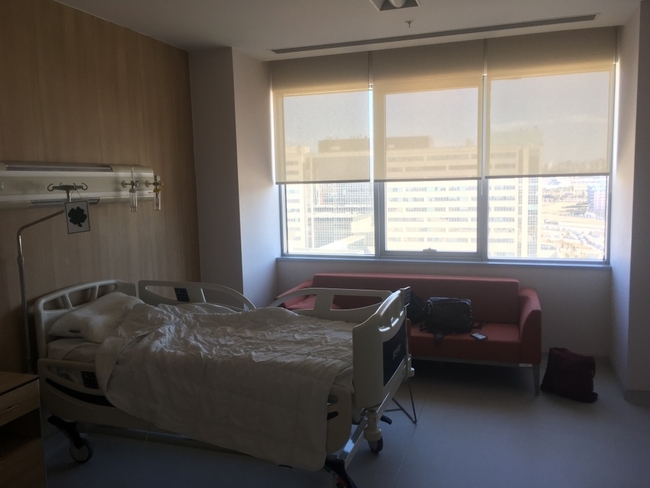
The next seven hours were a delirious trial of patience and forbearance. I had not eaten since lunch the previous day and was running a high fever. Each hour or so, a nurse approached my gurney to draw blood or to conduct further sputum tests, inserting elongated cotton swabs like miniature jousters’ lances into my nostrils. Gradually, several other young men, all Farsi speakers, were admitted as patients—they commiserated over our common plight while I remained curled in my corner. Still, over the hours a curious solidarity stemmed from our shared status as “foreign patients,” potential epidemiological threats to the nation that remained ostensibly free from Covid-19 at the time.
Near midnight, a technician arrived with a portable X-Ray machine to take an image of my chest. I protested that I had already received an abdominal X-ray, not to mention blood and sputum tests, at the polyclinic, only to receive the sort of curt response that I would come to expect in the following days: “Those tests are invalid.” Finally, at approximately two in the morning, the young man to my right and I received the discouraging news that we were to be transferred to the hospital’s infectious diseases ward. My attempt to pry more information from the nurse was unsuccessful, as he replied with bureaucratic cynicism: “Who knows? Maybe fourteen days? Ask the doctor tomorrow.” An hour later, as an orderly pushed my gurney through the empty, bright corridors of the hospital, I had the keen sense the I had entered the maw of a massive, indifferent beast that would only regurgitate me reluctantly.
By the time that I arrived in my room on the infectious diseases ward I had reached a point of collapse. My gratitude over achieving a degree of seclusion was mitigated by increasing fear over the hours and days to come. Soon, a nurse arrived to record a variety of personal information; our interaction prefigured many that were to follow. Her speech was abrupt and difficult to follow despite my fluent Turkish, for three reasons: medical terminology is always to some degree a dialect of its own; a surgical mask muted her voice; and, most importantly, she was indifferent as to whether I understood her or not. She spent the most time instructing me on the use of the remote control for the television set—clearly, the hospital staff had been instructed as to the importance of psychological pacification for patients under quarantine. When she had finished, I begged for food, explaining that I had not eaten for over twenty-four hours. Mercifully, she returned with two bread rolls packaged in cellophane and a small packet of grape preserves mixed with tahini. The rolls were the texture and taste of old parchment, but I wolfed them down before descending into feverish sleep. My brief night was restless, and not only because of my temperature. I was awoken frequently for further blood and sputum tests, or to have my temperature taken. Breakfast arrived at the sadistic hour of six. More parchment rolls. I neglected them for several hours until another nurse’s visit caused me to wake more thoroughly, at which point I gulped down a small plastic cup of now-cold tea and inspected my surroundings.
My room was clean and spacious, but bereft of many necessities. While there was a basin of liquid soap and toilet paper in the bathroom, there were no towels. Nor was any drinking water available. I pressed a button to summon the nurse repeatedly and futilely, with increasing exasperation. Later, I learned the Kafkaesque regulations concerning water and other necessities: patients must provide them for themselves, yet are also forbidden from leaving their rooms. Clearly, the expectation is that family members will spend many hours in the hospital navigating the bureaucracy in order to secure water, towels, and other amenities for their interred loved ones, but I had no one to brave this gauntlet for me. I checked my phone, only to see that it’s battery was nearly dead. Nor was there an internet connection, unsurprisingly.
I was still feverish and exhausted, yet I already sensed the approach of boredom, the sinister antagonist of the institutionalized. I turned to the broad, south-facing windows and absorbed the view that soon imprinted itself indelibly in my memory. In the distance, barren hillsides were freckled by recent high-rise apartment buildings and occasional shantytown dwellings, a typical panorama of the margins of western Ankara, where massive investment in new, middle-class and upscale housing developments creates an uneven terrain of novelty and neglect. In the foreground, the massive campus of the hospital spread out before me. Two ant-sized workers shared a cigarette break on a dry patch of crabgrass below. On the four-lane road that ringed the hospital taxis prowled in search of a fare. I allowed the view to mesmerize and sedate me until a doctor entered my room unannounced. Perfunctorily, she asked about my symptoms. Without waiting for an answer, she proclaimed, “We’ll keep you here through the weekend, at least,” and left. She had devoted less than three minutes to me, and I would not see another doctor until Monday. It was Friday morning.
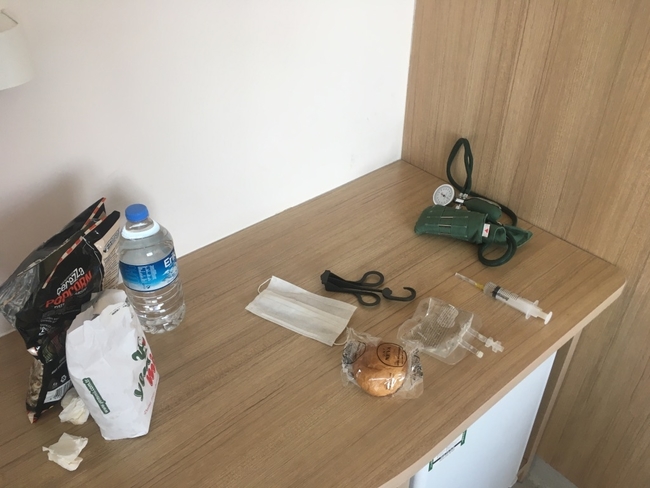
For the next three days, I spent long, empty hours alone, broken only by occasional interruptions. I quickly adapted to the rhythms of the hospital: the arrival of nearly inedible meals at 6:00 AM, 12:00 PM and 6:00 PM; visits from nurses every several hours to probe, poke, or pierce. On the second night, an acquaintance managed to deliver a bag of snacks to me, which I devoured eagerly. I was stunned when she entered my room without a mask—I later learned that she had come directly to me without registering at the nurses’ station on the ward. She was interrogated for an hour about her incursion and nearly quarantined before being allowed to leave. On Saturday, I persuaded a kind nurse to purchase a toothbrush and towel for me from the Carrefour grocery in the hospital’s basement, the only authorized retailer for patients in the hospital. Lacking sufficient reading material, I explored the television. I watched several episodes of Payitaht: Abdülhamid, the recent Turkish soap opera that melodramatizes the dramatic life and times of Sultan Abdülhamid II, the last Ottoman sovereign to wield full authority in the empire. Under the circumstances, this felt like research. When my patience for Payitaht frayed, I switched to Hollywood dreck dubbed in Turkish: the rebooted Mummy, a horrific Cruise vehicle, and the 2010 remake of Clash of the Titans. The deep, bellowing imprecations of the voice actor who ventriloquized Liam Neeson’s Zeus still echo in my ears.
I did not receive a visit from a doctor during the 72 hour stretch from my initial consultation on Friday morning to Monday morning. Nor was I given any medication, not even a pain killer or fever reducer. The doctors at the polyclinic had recommended a course of antibiotics, but my requests for medicine of any sort at the hospital were uniformly rejected—I suspected that the staff wanted to monitor my symptoms in order to determine whether I might be infected with Covid-19. When my fever spiked again on Saturday, I swallowed a smuggled Paracetamol that had been in my bag. Taking this illicit self-medication produced a strangely adolescent joy of transgression.
Monday began without any indication that I might soon be released, though my condition had improved substantially. In the mid-morning, however, a doctor trailed by a gaggle of interns entered my room and, after briefly inquiring about my symptoms, pronounced me better. This consultation was even briefer than my earlier encounter. When I asked about the results of my tests, my question was brushed off: “Fine, fine, all fine—you can go.” Arranging my discharge would require three or four more hours, however. I was initially told that a member of the hospital’s accounts department would visit my room to assist with the payment process, but by the time lunch had passed I concluded that this was unlikely. I received permission to descend to the basement, where the accountants were located. Exiting my room, I experienced a keen sense of liberation that continued until I reached the basement—I took the stairs after several thwarted attempts on crowded elevators that only stopped on certain floors. Although the lobby was occupied by throngs of people, the accounts office was nearly empty. A pallid accountant produced my bill, some 6,000 Turkish lira, approximately 900 dollars. When I offered her my debit card, she smiled bleakly: “We only accept cash.” I was redirected to another accounts office, in the basement of the oncology ward, half a kilometer away. On my way outside, I paused for a cup of tea and a simit, Turkey’s ubiquitous snack, a thin bagel covered in sesame seeds. After days of flavorless food, this was a feast. Fifteen minutes later, I succeeded in paying my bill. Half an hour following this, I received my official discharge from the infectious diseases ward. Equipped with my surgical mask and still coughing intermittently, I took a taxi directly to Ankara’s central bus station. Within the hour, I was en route to Istanbul.
In his discussion of disease in Discipline and Punish, Foucault develops a striking distinction between the plague and the leper: “The exile of the leper and the arrest of the plague do not bring with them the same political dream. The first is that of a pure community, the second that of a disciplined society” (1995: 198). The months since the onset of Covid-19 have witnessed dramatic intersections of the logic of the leper and the logic of the plague. The imperative to purify the community, and the forms of xenophobia that the fantasy of purification sanctions, have justified increased surveillance, monitoring, and discipline. Blurring the distinction between the leper and the plague is politically expedient in the time of Corona. Sovereign authority rests in the right to decide which ill bodies are to be demonized and exiled, and which ill bodies will be subject to surveillance, analysis, and discipline. Those who have the misfortune of being infected by Covid-19 are not yet lepers or plague victims. Political context alone determines this classification.
My misadventure in Ankara City Hospital was charted by the logics of both the leper and the plague. Initially, I was marked as a “foreign patient!” and sequestered with other potential threats to the collective health of the national community. Once the institutional operations of the hospital commenced, I became an object of the logic of the plague, monitored, perforated, and exposed to “the capillary functioning of power” (ibid.). Ultimately, however, the logic of the leper triumphed: it was simpler to expel me from the hospital, with the expectation that I would soon leave the territory (as indeed I did) than to maintain disciplinary power. While I cannot be certain, I strongly suspect that my viral status was never fully determined. I was never told decisively whether I was infected or not. In any case, the operations of both disciplinary and exilic power, the logics of the plague and the leper, effectively objectified me regardless of my viral condition.
After departing from Istanbul in early March, I related my story to many friends and colleagues. At the time, it seemed both dramatic and extraordinary. Exposure to disciplinary power is a titillation to privileged liberals who live lives untouched by the mechanisms of surveillance and the strictures of coercive institutions. Four months later, my experience seems far less remarkable or noteworthy. As lockdown orders continue or resume, movement remains curtailed, and both space and time acquire new, warped dimensions, citizens of liberal democracies have readjusted rapidly to the pervasiveness of discipline. My four-day quarantine in Ankara was an early allegory for this recalibration. Those who are befuddled, frustrated, and even enraged over the resurgence of discipline and the propagation of new lepers would do well to remember that these practices of power never truly subsided in the first instance. They remained in force throughout most of the world, and were omnipresent, if disavowed, in liberal democracies prior to Covid-19. As we seek to open new horizons of social and political possibility in the continuation and aftermath of Corona, we must avoid the temptation to respond solely with lachrymose bourgeois complaint over disciplinary power. Such a response would be provincial navel-gazing of the highest order.
Acknowledgement: The author would like to thank Karin Doolan, Bryan M. Dougan, Gabriela Manley, Alize Arıcan and Peter van der Veer for their generous, incisive comments on drafts of this essay.
References
Agamben, Giorgio. 2020. “Clarifications.” 17/03/2020. European Journal of Psychoanalysis. Accessed online, 20 July 2020, at https://www.journal-psychoanalysis.eu/coronavirus-and-philosophers/
Foucault, Michel. 1995. Discipline and Punish. The Birth of the Prison. A. Sheridan, trans. New York: Vintage Books.
Foucault, Michel. 1991. “Governmentality.” In The Foucault Effect: Studies in Governmentality, edited by Graham Burchell et. al., 86– 104. Chicago, IL: University of Chicago Press.
Cite as: Walton, Jeremy, F., 2020. “Four Days Quarantine in an Ankara Hospital, or, Disciplinary Power in the Time of Covid-19” In “Pandemic Diaries,” Gabriela Manley, Bryan M. Dougan, and Carole McGranahan, eds., American Ethnologist website, 29 July 2020, [https://americanethnologist.org/features/pandemic-diaries/making-sense-of-things/four-days-quarantine-in-an-ankara-hospital-or-disciplinary-power-in-the-time-of-covid-19]
Jeremy F. Walton leads the Max Planck Research Group, “Empires of Memory: The Cultural Politics of Historicity in Former Habsburg and Ottoman Cities,” at the Max Planck Institute for the Study of Religious and Ethnic Diversity. His first book, Muslim Civil Society and the Politics of Religious Freedom in Turkey (Oxford University Press, 2017), is an ethnography of Muslim NGOs, state institutions, and secularism in contemporary Turkey.
